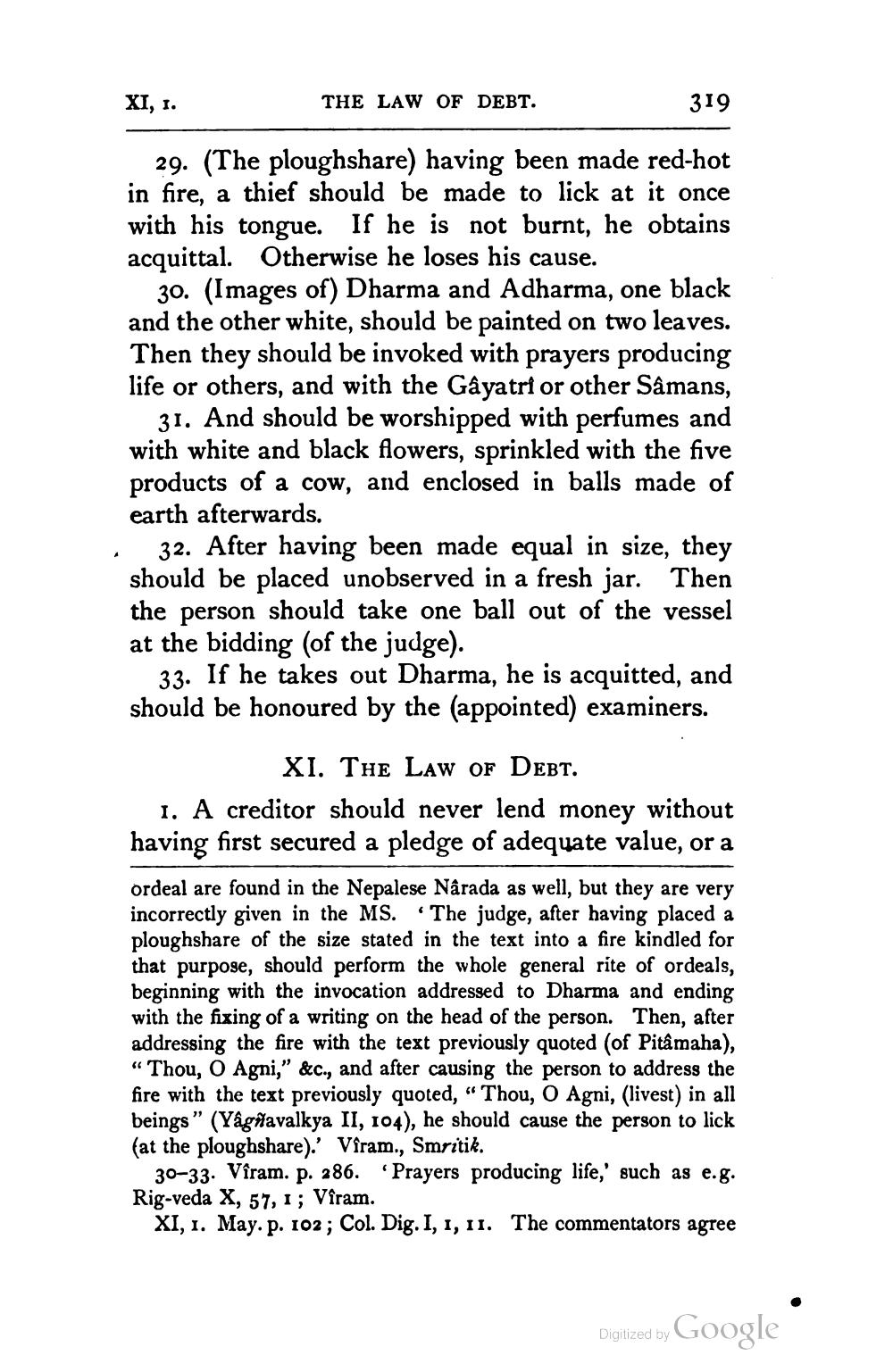________________
XI, 1.
THE LAW OF DEBT.
319
29. (The ploughshare) having been made red-hot in fire, a thief should be made to lick at it once with his tongue. If he is not burnt, he obtains acquittal. Otherwise he loses his cause.
30. (Images of) Dharma and Adharma, one black and the other white, should be painted on two leaves. Then they should be invoked with prayers producing life or others, and with the Gayatri or other Sâmans,
31. And should be worshipped with perfumes and with white and black flowers, sprinkled with the five products of a cow, and enclosed in balls made of earth afterwards.
32. After having been made equal in size, they should be placed unobserved in a fresh jar. Then the person should take one ball out of the vessel at the bidding (of the judge).
33. If he takes out Dharma, he is acquitted, and should be honoured by the (appointed) examiners.
XI. THE LAW OF Debt. 1. A creditor should never lend money without having first secured a pledge of adequate value, or a
ordeal are found in the Nepalese Narada as well, but they are very incorrectly given in the MS. The judge, after having placed a ploughshare of the size stated in the text into a fire kindled for that purpose, should perform the whole general rite of ordeals, beginning with the invocation addressed to Dharma and ending with the fixing of a writing on the head of the person. Then, after addressing the fire with the text previously quoted (of Pitâmaha), “Thou, O Agni," &c., and after causing the person to address the fire with the text previously quoted, “Thou, O Agni, (livest) in all beings" (Yågħavalkya II, 104), he should cause the person to lick (at the ploughshare).' Vfram., Smritik.
30–33. Vîram. p. 286. "Prayers producing life,' such as e.g. Rig-veda X, 57, 1; Vîram.
XI, 1. May.p. 102; Col. Dig. I, 1, 11. The commentators agree
Digitized by Google




